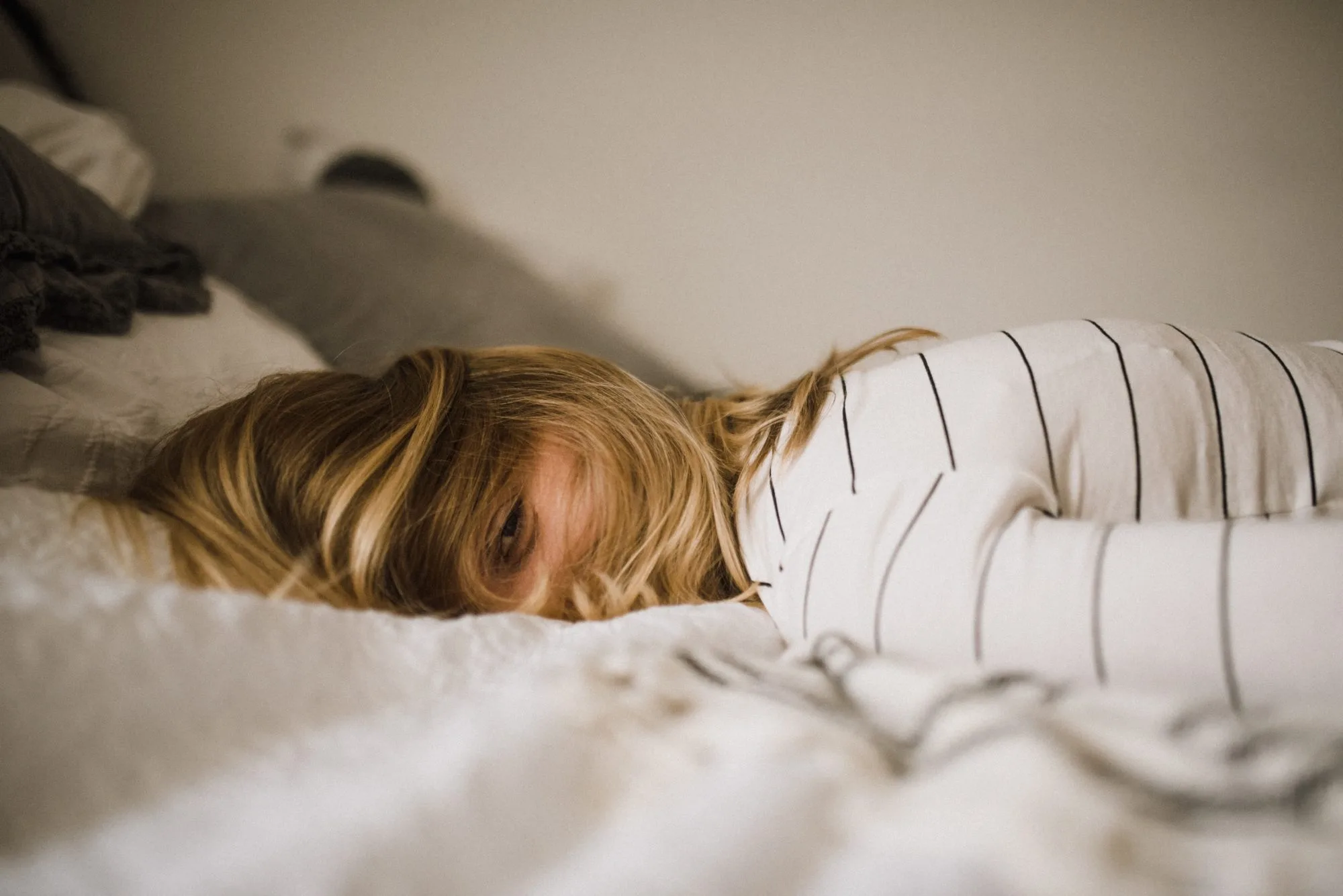According to the American Congress of Obstetricians and Gynecologists, over 50% of women report experiencing some form of pain from period cramps for a day or two each month (1). Dysmenorrhea (the medical term for menstrual cramps) is typically characterized by a dull pain in the lower abdomen, that can move to the lower back or thigh area. Dysmenorrhea occurs before or during the menstrual cycle and accompanying symptoms may include nausea and dizziness. Not only are these symptoms uncomfortable, but for some women, it can have them completely confined to their beds.
What causes period cramps?
During your period, the muscles around the uterus contract to get the uterus lining out of the body. Some women may experience intense period cramps, whereas others may not feel anything at all. As yet, doctors are still unsure of why women experience different degrees of period pain. However, it may have to do with their blood flow and hormonal levels.
Period cramps are classified into two groups – primary and secondary dysmenorrhea. Primary dysmenorrhea starts a few years after the first period and some believe that it’s caused by the hormone prostaglandins. Unlike primary dysmenorrhea, secondary dysmenorrhea has an underlying physical cause, and it’s often linked to endometriosis, pelvic inflammatory disease, uterine fibroids, or uterine polyps.
Conventional remedies
When it comes to dealing with period pains, some women turn to birth control. Whilst birth control pills may help alleviate period pain, they also come with side effects that include a higher risk of cardiovascular health problems, such as blood clots (2). Women also use over-the-counter (OTC) pain medications for their menstrual cramps. OTC pain medications such as Advil (ibuprofen) may lower prostaglandin production, which then alleviates pain. However, it may also have an addictive effect.
With that said, there are a few more natural remedies that can help you manage those painful periods. Here are a few tips to consider the next time a painful cramp hits.
10 Natural Remedies for Menstrual Cramps
1. Acupressure and acupuncture
Acupuncture and acupressure are traditional, Chinese healing practices that have been used to address a number of issues that include arthritis and fibromyalgia. While acupuncture is the application of needles to certain trigger points on the skin, acupressure is, instead, the application of pressure. The idea is that the applied pressure, or needles, will stimulate the trigger points. Doing so will reduce inflammation and alleviate pain.
Whilst they did admit that more studies were needed, the researchers involved in a review published in the Cochrane Database of Systematic Reviews discovered that both acupuncture and acupressure can help to relieve pain in women dealing with primary dysmenorrhoea.
2. Boost your endorphins with exercise (or an orgasm) ![summer time [longevity live]](https://longevitylive.com/wp-content/uploads/2019/06/exercise-person-runner-2291874-620x349.jpg)
Endorphins are brain chemicals that promote your well-being by alleviating pain, discomfort, and stress. While there are a number of natural ways to boost your endorphins, exercising is the most common way to do so.
Granted, the last thing you may want to do is cardio as your stomach contracts for pain. However, you don’t have to jump on the treadmill. Simply walking, or doing other gentler forms of exercise such as yoga and TAI chi can help to release endorphins (3).
Similar to exercise, an orgasm can also have your brain release endorphins. As yet, no clinical studies have linked orgasms to relieving menstrual pain. However, vaginal orgasms do trigger the release of endorphins, and they can decrease pain perception. Thus, it’s possible that they can alleviate period pains.
3. Calcium
A mineral necessary for bone health and the regulation of heartbeat, calcium can also help to reduce painful period cramps.
A study published in the journal Pain Medicine found that intake of calcium supplements was effective in reducing menstrual pain intensity.
If you want to up your take on calcium, you don’t always have to look at dairy products. You can get your recommended intake of 1000 mg a day by consuming supplements as well as figs, almonds, sesame seeds, and dark leafy greens.
4. Ginger
Grating a small piece of ginger into a cup of hot water may offer period pain relief.
Ginger contains two compounds that may help address period pain by inhibiting prostaglandin synthesis. According to a study published in The Journal of Alternative and Complementary Medicine, 250 mg of ginger powder four times a day for three days was as effective as ibuprofen in providing pain relief.
5. Magnesium
Naturally found in green leafy vegetables, seeds, and available in nutritional supplements, magnesium is vital for the healthy functioning of the human body. It is responsible for supporting healthy muscle and nerve function and immune function. It also helps regulate heart and bone health.
According to a study published in the Cochrane Database of Systematic Reviews, getting adequate levels of magnesium can help to relieve pain associated with dysmenorrhoea. However, one cannot recommend a specific dose in order to alleviate pain. Thus, it’s best to stick to the recommended magnesium intake of 310 t0 400 milligrams per day.
6. Omega-3 fatty acids
Found in salmon, sardines, fish oil capsules, and chia seeds, omega 3 fatty acids may help alleviate menstrual cramps.
One study done in 240 teens with menstrual cramps found that teens who had taken 500 mg daily of fish oil supplements reportedly experienced significantly less pain than a group that had taken a placebo (4).
7. Stay hydrated
Staying hydrated and drinking 6 to 8 glasses of water a day can help to avoid painful bloating.
If you’re having trouble drinking warm water (which can relax cramped muscles), you can add some fruit or lemon to make it more palatable. Additionally, you can also eat water-based food such as watermelon, strawberries, lettuce, and tomatoes.
 8. Turn up the heat
8. Turn up the heat
Heat helps muscles relax and in doing so, it helps to ease cramping and discomfort.
According to a review of studies published in the Journal of Physiotherapy, heat helps to significantly reduce period cramps, somewhat more than ibuprofen.
In addition to purchasing a heating pad online, you can also use a hot water bottle, a hot towel, or even take a warm bath.
9. Use essential oils
The use of essential oils can provide a range of benefits for the body.
Using a blend of lavender, clary sage, and marjoram oil, one study found that women who used the essential oils blend experienced a significant reduction in both the amount and duration of their menstrual pain (5).
If you’re going to use essential oils such as lavender or cinnamon to alleviate your discomfort, it’s important that you always dilute it with a carrier oil, such as avocado oil or extra virgin olive oil.
10. And lastly, avoid these foods
During your menstrual cycle, you may be craving sugary treats and fatty foods. Unfortunately, these foods can cause bloating and increase inflammation – both of which can exacerbate period pain. Therefore, it’s best to avoid these foods, as well as caffeine, and alcohol.
Instead, opt for healthier foods that are rich in nutrients that can combat inflammation in your body. These include leafy green vegetables, fruits, and whole grains.
Should I see a doctor if my period cramps get worse?
It’s important to note that there hasn’t been enough research to conclude that the aforementioned remedies will be a hundred percent effective on everyone that tries them. That said, if the remedies, nor OTC medications help to relieve your period cramps, then you need to speak to your doctor as the cramps may be an indication of something more serious.
In addition to constant and severe pain, it’s important to see your doctor if:
- the pain is consistently debilitating
- the bleeding gets heavier over time.
- you’re over 25 and severe period cramps are a new development



 8. Turn up the heat
8. Turn up the heat![women [longevity live]](https://longevitylive.com/wp-content/uploads/2020/01/photo-of-women-walking-down-the-street-1116984-100x100.jpg)










